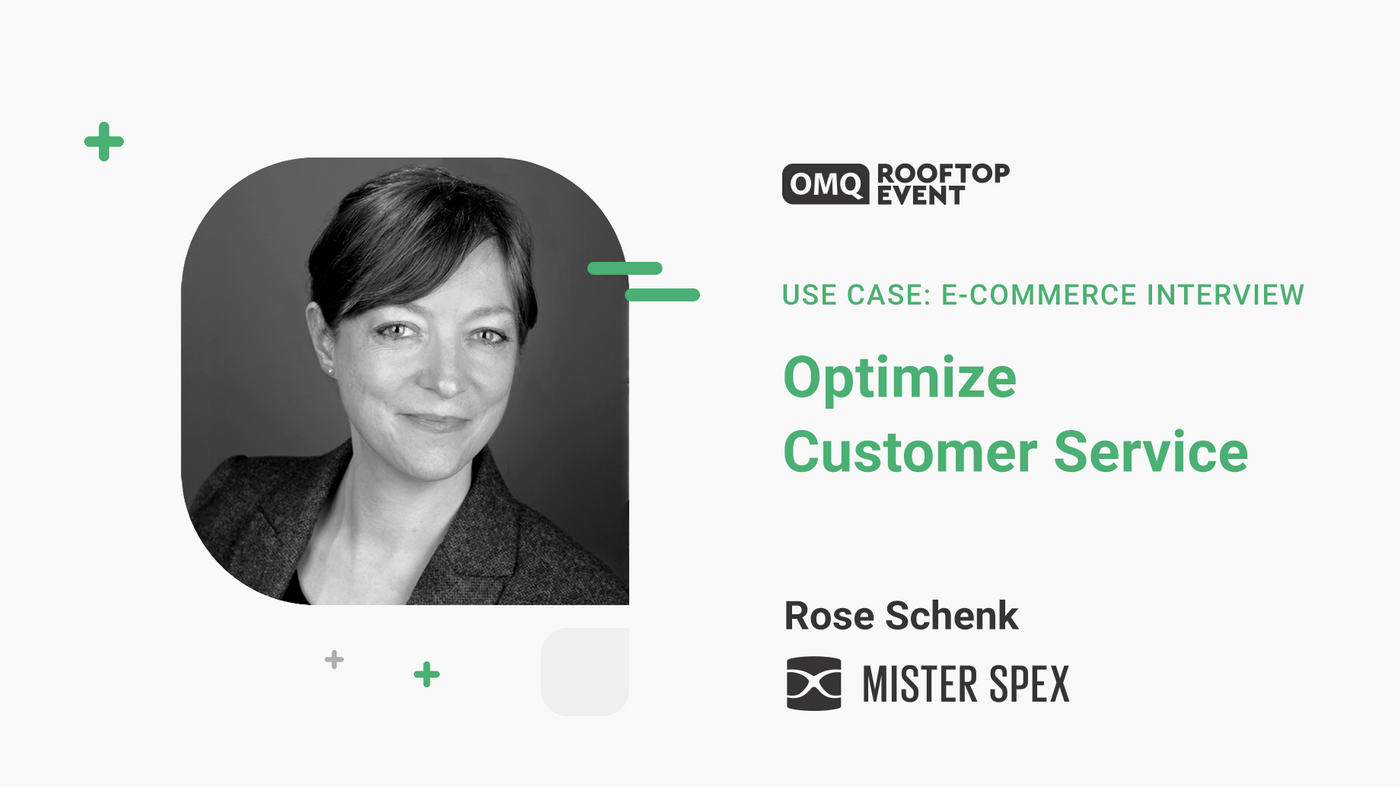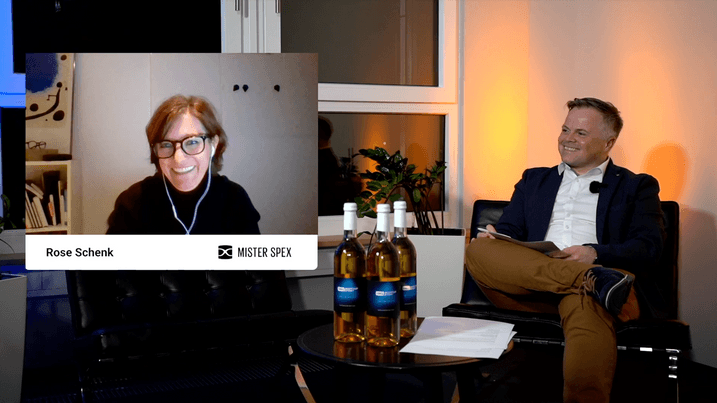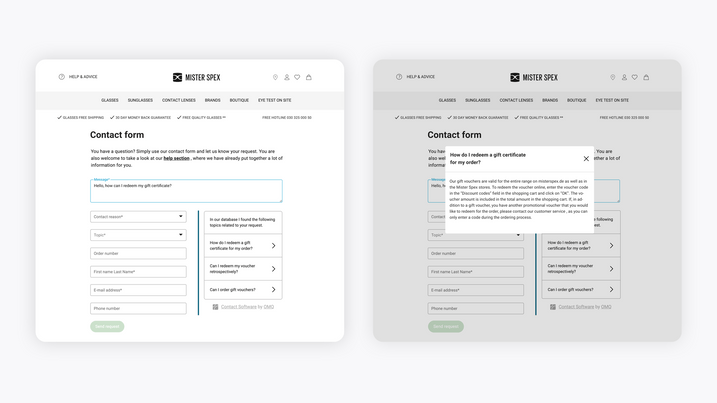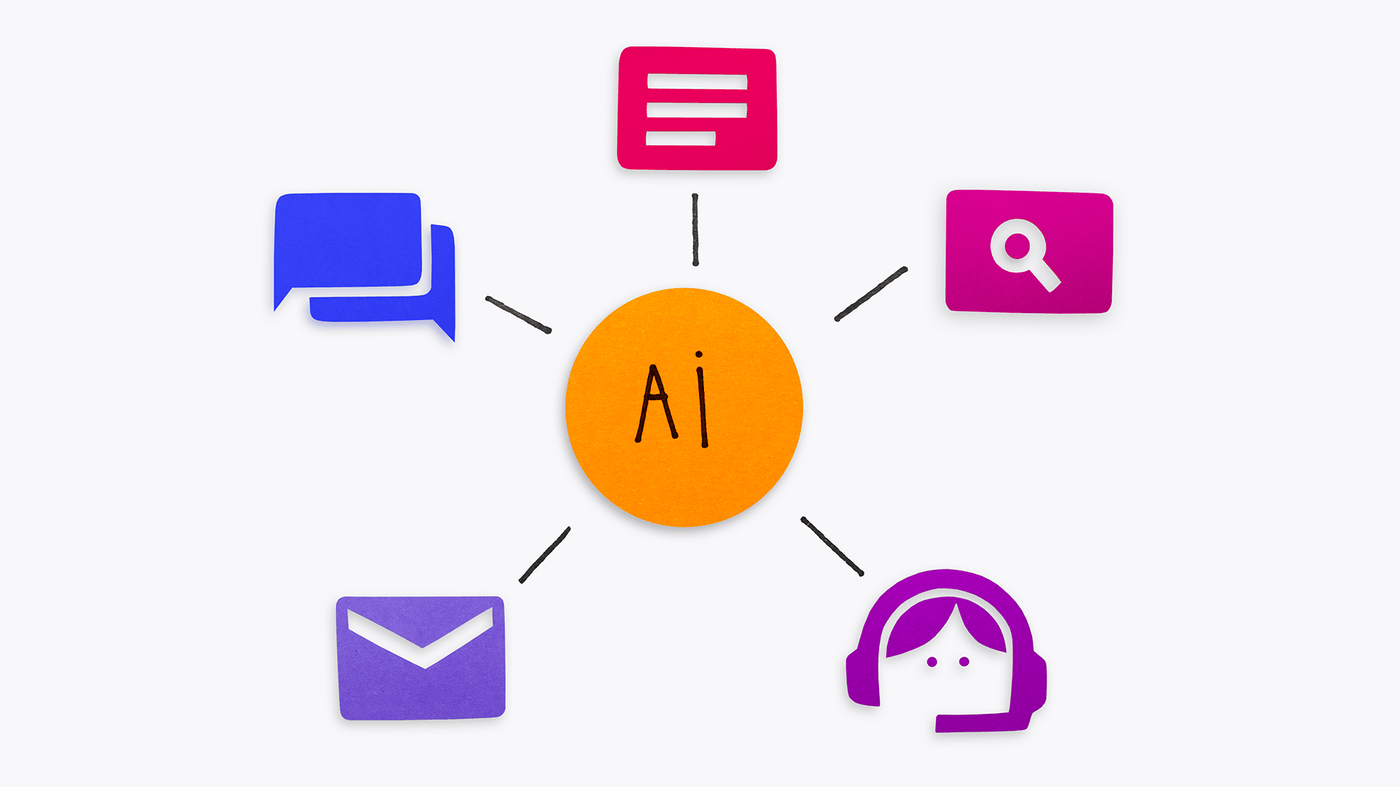Professional Voices
E-Commerce Interview | Mister Spex about Automation and Trends in Customer Service
Mister Spex automates its customer service with OMQ, thus reducing customer inquiries and improving the customer experience, ultimately turning customers into fans.

Mister Spex is Europe’s largest online optician and, thanks to its omnichannel sales concept, is considered a pioneer of online marketing in the industry. At our rooftop event 2022, we were able to talk to Rose Schenk, Head of Service Excellence at Mister Spex, about their recipe for success.
Through the OMQ contact form we can reduce quite a lot of contacts and the customers can help themselves in the self-service portal. In addition, we were able to summarise our data really well in the OMQ system.Rose Schenk, Head of Service Excellence at Mister Spex
In the following interview with our CEO Sven Engelmann and Rose Schenk, our focus is on the company’s customer service, which we have been automating with our software since 2020.
Sven: Before we start the interview, could you introduce yourself and tell us a bit about Mister Spex?
Rose: I’m Rose and I’m the Head of Service Excellence at Mister Spex. My team and I take care of everything that goes on behind the scenes in customer service. For example, data reporting, shift planning, training and outsourcing. Mister Spex makes and sells glasses. We are one of the leading online retailers in this field.
Sven: I also think that Mister Spex is a name that many in the audience know. So we wonder how the customer service at Mister Spex works? You are an online shop, but you also have 40 stores right on site.
Rose: Our customer service works as a mix. In some locations we have stores, but we also have a large e-commerce shop. This means that there is an interplay between two factors: on the one hand, the customer has the opportunity to order directly online, on the other hand, they can also go to the store at many locations.
So we can offer the customers exactly what they want. When a customer first wants to go to the store, they are shown by the employees how to order online, how to create their customer account and how to enter their visual values. So the next time they visit, they have the opportunity to choose whether they want to visit us in the online store or directly in the store in their city.
Sven: Are there any special features in your customer service? That’s a very interesting topic, of course, because you’re such a young company. Usually you have a trading company with stationary locations and then go into the e-commerce area step-by-step. It was different with you.
Rose: Exactly, we started as an online store and opened stores little by little. In fact, there was another peculiarity: we are distributing a medical product. This means that we focus on quality. Quality always comes first, closely followed by quantity. We want to make both possible and meet the high expectations of our customers. We try to get the customer directly to where they can best be helped with their enquiry in customer service.
In other words: A simple request, such as cancellation, return or delivery time, can be answered directly by someone who does not have optical expertise or by automatic means. Complex optical questions are dealt with directly in a team of specialists, consisting of only opticians and very experienced people with a lot of specialist knowledge.
Sven: That’s also a very interesting point, the medical product. I wasn’t aware of that, of course, this places a special demand on customer service.
Rose: Yes and it is also very important for our customers. Glasses and contact lenses are a tricky subject, because if I don’t see well, I have a big problem. Of course, I rely on the optician or the customer service, and the quality has to be right. No one who is unfamiliar with optical issues is allowed to sit there.

Rose Schenk interviewed by Sven Engelmann
Sven: You put a big focus on quality, but also on customer service. You’ve built a very good, strong brand. How does this strong brand express itself in your customer service?
Rose: We want to turn the customer into a fan, so we support them from the very first moment. First, by the ordering process in the webshop, secondly, of course, in the store, when they come to us directly. We want to accompany them on their journey and leave them as happy as possible so that they return.
Sven: You are our customers as well and we would like to know what your experiences with our system are. Because of your structure, we are involved in your contact form on the one hand, but also in the local stores.
Rose: We work very closely with you. One example is the contact form, which we use very intensively with you. When the customer enters a certain keyword, questions and answers are suggested. They can act immediately and we have the ability to adjust quickly.
OMQ is a great system for us because we can change things on a regular basis on the basis of the reports at any time. We can add new themes, remove old ones. We can work with what we learn from the customer very well.
Sven: How do you experience or measure customer satisfaction?
Rose: We use surveys and follow up directly with the customer. After the interaction, the survey goes out, we get feedback from the customer and respond to it. So we target customers in a targeted manner, conduct occasional interviews and try to improve our systems and customer service in the long term.
Sven: We have been working for Mister Spex since 2020. What was your experience with the corona crisis, especially in the beginning? How was your approach and procedure?
Rose: We had some challenges. The biggest was the technical one. Before the pandemic, our customer service was fully present at the Berlin office. So we first had to send the whole team to the home office, get laptops and equipment and then rebuild the structures. Before that, a lot of things were done on site, such as our shift planning. We all had to get used to the home office and put our training courses online. It took a long time and was not easy. In the first phase of the changeover, our customers often received e-mails that their order was delayed.
At the same time, of course, customer enquiries grew. So more customers contacted us and we had less capacity at first. It was difficult, we had to work overtime, we had to resort to some helpers, but we also saw some positive aspects. Because we all went to the home office, we quickly realized that this form of work works very well, both for training and for everyday life. We like it because it also gives us the opportunity to hire people who do not exclusively live in and around Berlin, but all over Germany. We have had some very good experiences lately.

OMQ Contact in use at Mister Spex
Sven: It is always very interesting that crises lead to changes in the entire business model or the way the company works.
Rose: Yes, totally! I also promoted this in our technology, because we realized that if everyone is so scattered, we need technology to support it. Starting with teams, but also for internal control, we needed new technology, new processes and new procedures.
Sven: Exactly. And then you approached us because you needed to relieve customer service a little bit. Can you maybe tell us something about that?
Rose: Sure. Our goal was to have a knowledge database. On the one hand, in order to collect our data and have an identical wording, on the other hand, to reduce contacts. Together with you, we have succeeded very well, that’s nice.
The contact form allows us to reduce the number of contacts and the customers can help themselves in the self-service portal. In addition, we were able to summarize our data very well in the OMQ system. I mentioned earlier that we can also work well with it ourselves by changing, adding and deleting things and being able to see what is happening to the customer and where we need to change something from the reports.
Sven: My last big point that I would like to discuss with you would be the subject of “future”. Of course, it always makes sense to look back at previous changes, to understand what might happen. You have been overseeing this process for some time and in recent times, which is our experience, the communication channels have changed a bit. Is that your experience too?
Rose: Yeah, totally. In any case, we notice that the classic way of communication “telephone” is being replaced by mail, chat and self-service. We notice that customers are distancing themselves from traditional communication channels, so we do that too. And we notice, of course, that the customer demands a certain speed and dynamism from us.
We also try to implement this by acting very skill-based. That means we implement automated software exactly where it is possible and useful for the customer, so that we do not have to answer every single request ourselves, but can use our time to ensure good advice.
Sven: That’s a good prospect for customer service, isn’t it?
Rose: Yes, I think so too. Where technology can help, it should do so and give us the space for the really important things in customer care and customer advice.
…and you can read more here
In addition to our interview with Rose, we also heard several other customer service voices at our rooftop event. Our panel discussion was primarily about customer centricity, while our CEO Matthias Meisdrock spoke about current trends and developments at OMQ in his keynote.
On our blog there are many different articles about customer service, including all posts from our previous rooftop events. If you want to learn more about us, our products or our annual rooftop event, you can browse through our OMQ Magazine or contact us. We look forward to hearing from you! :)



